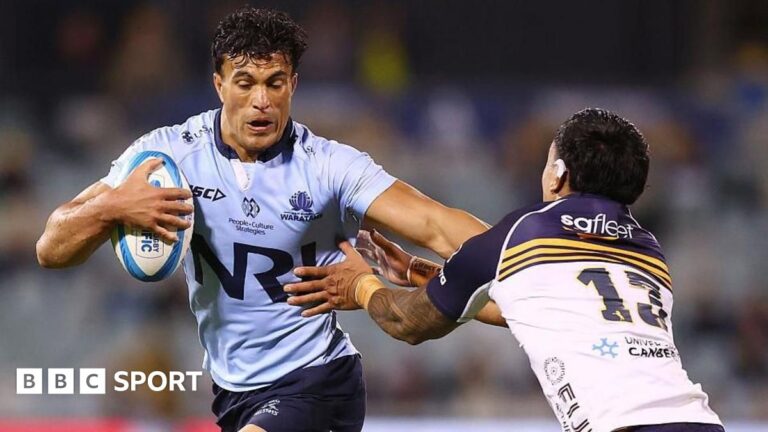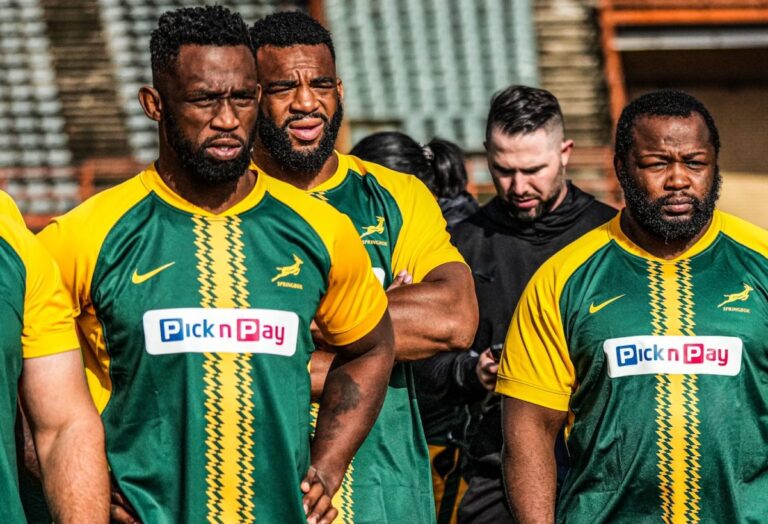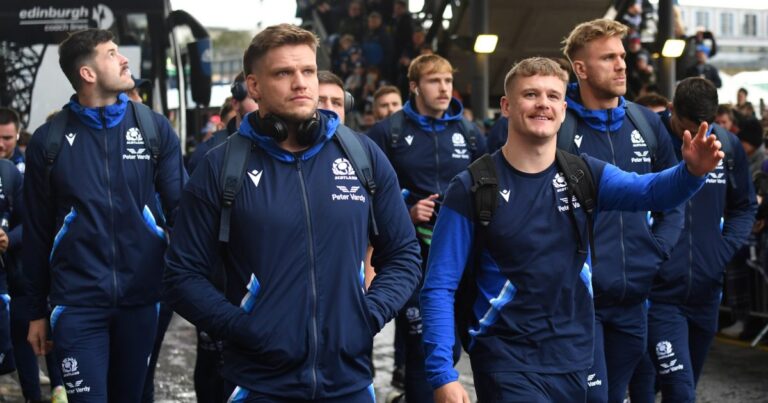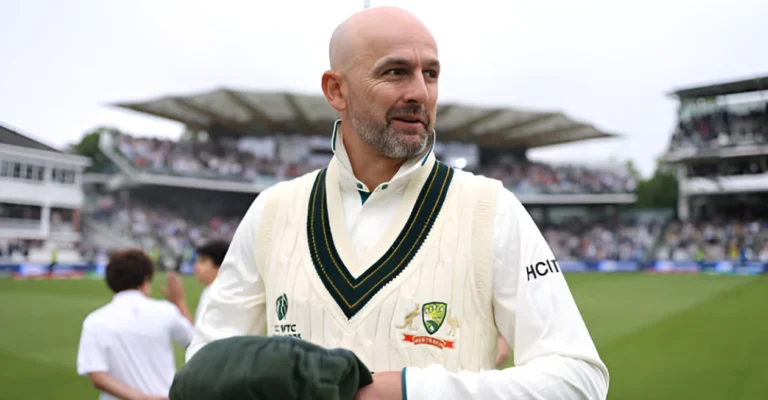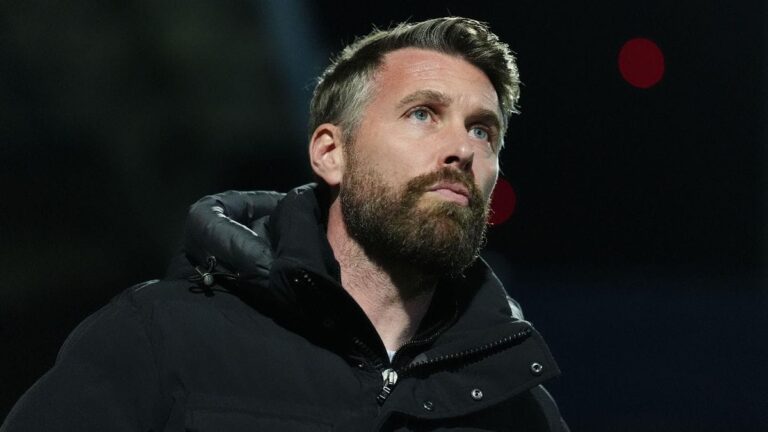
After soaking up the rays on a scorching Dublin day, the ‘sea of red’ descended on Aviva Stadium for the first sold-out British & Irish Lions match in eight years. The last time the Lions played to a packed arena, the match ended with Sam Warburton and Kieran Read sharing a trophy lift at Eden Park.
It was good to be back on the hype train. Dublin awash with Celtic and Saxon accents, and most of them wearing red. There were pockets of boisterous Argentina supporters and even a few French jerseys spotted. The pre-match atmosphere was fizzing. Evening games when the sun has lingered, most everyone is pulling for the same side and the drinks are flowing. The party had ebbed, flowed and flowed again, long before kick-off.
Then the match kicked off. You could just hear the thrum of constant chatter as the first half played out. Lions fans wanted to see their side win, of course, but there was a lack of bite from the urgings and sing-song attempts. Fans of the four combined nations were finding their feet, too.
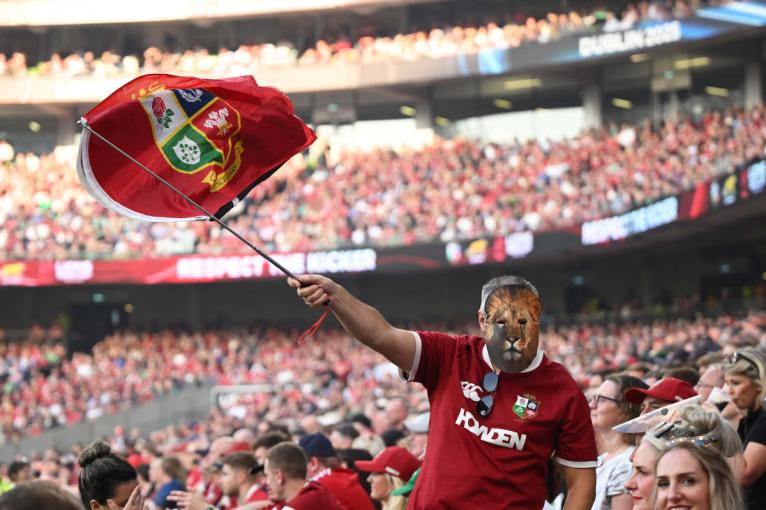
Down on the pitch, Argentina looked keyed in for this match. They had not played the Lions since a Millennium Stadium draw in 2005 and were keen to lay down a marker. Rodrigo Isgró, Tomás Albornoz and Gonzalo García were electric while the Pumas pack were a nuisance in the loose, and wobbled the Lions lineout. Felipe Contepomi’s side won the kick battle and their offloads stuck when Lions dishes were skittling up and down Lansdowne Road.
In their perennial quest for respect from the rest of rugby’s elite, Argentina struck a huge blow. They would dearly love for the Lions to swing by Estadio José Amalfitani or ‘Monumenta’ (or both, please) on their next tour. Sounds nice in theory but the Lions might take that one under advisement, after Friday’s fleecing.
We have to have the tough conversations. We have to be honest. We can’t take it too personally. This is the thing with this sport and this tour. It comes and goes so quickly.
It was nearing 11pm when Tom Curry walked into the writers’ room to try make sense of what had played out earlier that evening. It did not take long to see why the English press, and fans, think highly of the guy. He was open, articulate, not interested in offering trite answers and he stuck around until each query had been covered.
Curry was livid with how the game had played out. Family and friends were in the crowd – cheering him on before that long trip to Australia – and he was fully aware of how much time, effort and money so many supporters had emptied into making it to Dublin.
“We need to be more clinical with the ball,” he insisted. “The exciting thing is we’ve got people in the right positions but, ****, we can’t score points if we keep dropping it and giving it away easily.”
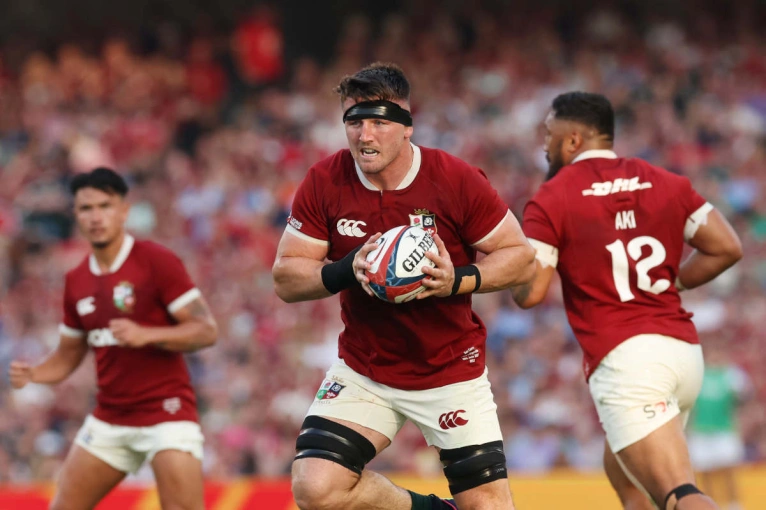
The Lions had 15 offloads to Argentina’s five, as well as running for more metres (510 to 345), making more line breaks (nine to six) and beating more defenders (39 to 26). From up in the stands, it looked clear that Farrell and his coaches are trying to keep the ball alive, in order to deny the opposition defence time to reload and reorganise.
Farrell fumed, in his post-match chat, about his players flinging unsighted and hopeful offloads. Curry scoffed at such instances, too, and proclaimed, “We’re not about throwing the ball out the back. That’s the point Andy has been hot about – you’ve got to see the pass. We’ve got to know someone is there. There were probably a few moments where that didn’t happen. This is what I’m saying – we say it in training, then we don’t do it in the game.”
“Everyone has been pulling in the right direction,” Curry told us, “but we have to have the tough conversations. We have to be honest. We can’t take it too personally. This is the thing with this sport and this tour. It comes and goes so quickly.”
“Respect is so hard to win,” the Sale flanker mused, “but so easy to lose.”
The Lions would leave their team hotel at noon, the next day. There was no time to pore over match review footage. “I’ll probably download it for the flight,” said Curry. “Yeah, it’s either (watch) that or The Office. I’ll probably watch The Office!”
Through his actions and words, Daly is showing the latest crop of Lions what is required for this tour. He could easily finish with more Test caps in red.
Ellis Genge and Bundee Aki had fine games, while Tomos Williams and Mack Hansen brought spark off the bench. Then we have the Lions’ everyman. The player not included in many journalists’ or former players’ Lions squad but who looks more valuable by the day.
Elliot Daly’s first Lions involvement was playing against them, for the Barbarians, in 2013. Daly has appeared in five Test matches for the Lions and his versatility makes life a lot easier for Andy Farrell. The 32-year-old covered five backline positions, on Friday, and took the hard-charging baton from Bundee Aki, the man he replaced for the final quarter.
Blair Kinghorn is chasing the Bouclier de Brennus with Toulouse and Hugo Keenan has arrived in Australia without shaking his calf strain. It was Daly that spoke most to his team-mates in the huddle, after that loss to Argentina. Through his actions and words, he is showing the latest crop of Lions what is required for this tour. He could easily finish with more Test caps in red.
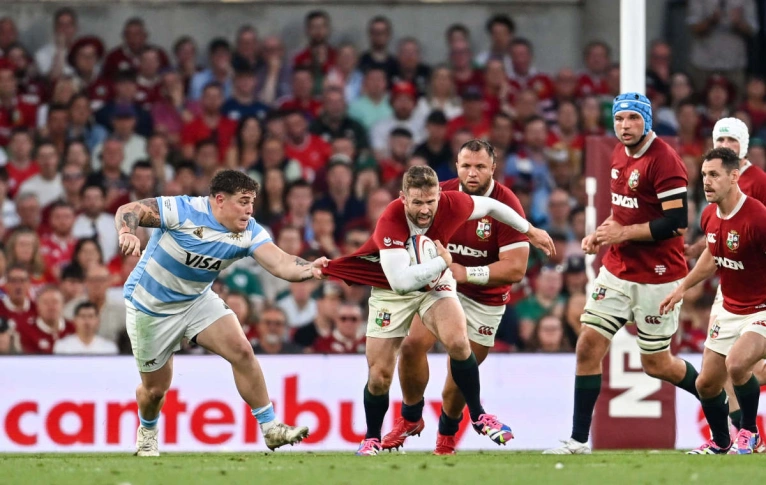
One of the big positives from that Dublin send-off was a player that was not even in the original squad.
When Farrell’s 38-man squad was announced, in early May, he spoke of his experiences as defence coach on the 2013 Lions tour to Australia. “Alex Corbisiero, who wasn’t in the initial squad, came over on tour for Cian Healy, who got injured in the first game, in Perth,” Farrell noted. “Alex ended up getting man of the match, and stealing the show, in the last game. That epitomises what the Lions are all about.”
Like Corbisiero, Finlay Bealham also endured the crushing experience of being left out of a Lions squad. He would have known his race was run as soon as the first forward was read out, in alphabetical order – Tadhg Beirne. At 33, it was realistically the Connacht prop’s last real chance of touring.
In his early years with Connacht, Bealham had shifts as a barman at The Sportsground, and checked tickets on the turnstiles, all before his senior breakthrough in 2014.
Bealham hails from Canberra but moved to Ireland as a teenager when he did not get a place with the Brumbies academy. He qualified to play for Ireland through his Fermanagh grandmother, Sadie, and was in with Ulster for a short spell before Connacht offered him a place in their academy. In his early years with the province, Bealham had shifts as a barman at The Sportsground, and checked tickets on the turnstiles, all before his senior breakthrough in 2014.
With Tadhg Furlong experiencing a hellish season with injuries and setbacks, Bealham started eight of his nine Test outings at tighthead, and had a solid Six Nations. Lions legend Will Greenwood felt Bealham was Ireland’s best player of the Six Nations, while team-mate Andrew Porter held him in a similar regard. “Finlay stepped up incredibly well,” Porter told me. “He’s a player that keeps bringing these impeccable standards to the pitch. I’d say Tadhg will have a bit of a battle on his hands, trying to get the (Ireland) jersey back off him.”
When it came to that squad announcement in May, Bealham missed out and Furlong made the cut. He was named in Ireland’s squad for summer games against Georgia and Portugal, but had not even packed a bag for their Dublin training camp when Farrell called. Zander Fagerson was struggling and the Lions needed their first full-blown replacement.
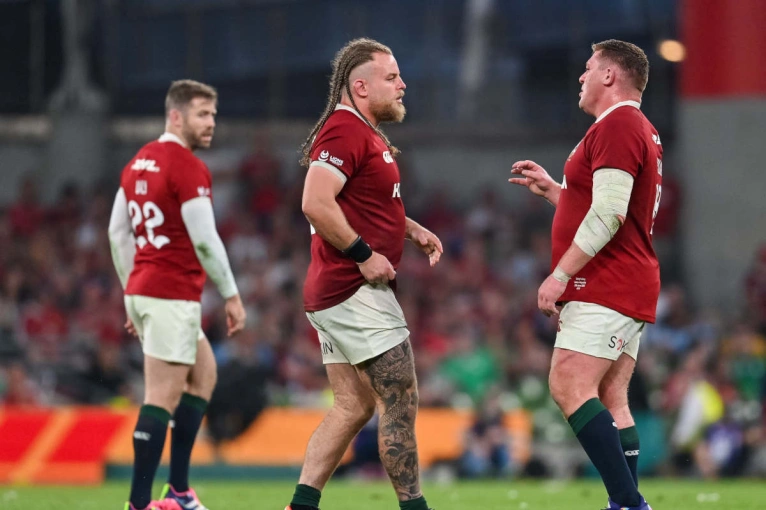
“I started choking up,” Bealham recalled of that Farrell phone call. “As Andy was speaking, I just let it all go. I was proper crying.”
Rejected by the Brumbies and Ulster in the space of 12 tough months, Bealham does not care if he gets a second, third, eighth or last chance. Just give him the chance. Against Argentina, he got just that and staked an early claim for involvement in that Test squad. Himself, Genge and Luke Cowan-Dickie were part of a front row that won three scrum penalties. Bealham stuck 11 tackles – topping the Lions’ count – and trucked up a couple of carries during his hour on the pitch.
Some people will be happy and some people won’t and will be dying to get another chance out there.
“The scrum was aggressive,” Farrell observed, post-match. “The lads who started the game especially were aggressive, and good, and had Argentina under the pump a few times.”
It was one of the only times Farrell’s tone lightened. He was sick with the performance and result.
“Some players will have done themselves proud and they will be hurting for the team because they’re all team players. Some people will be happy and some people won’t and will be dying to get another chance out there.”
